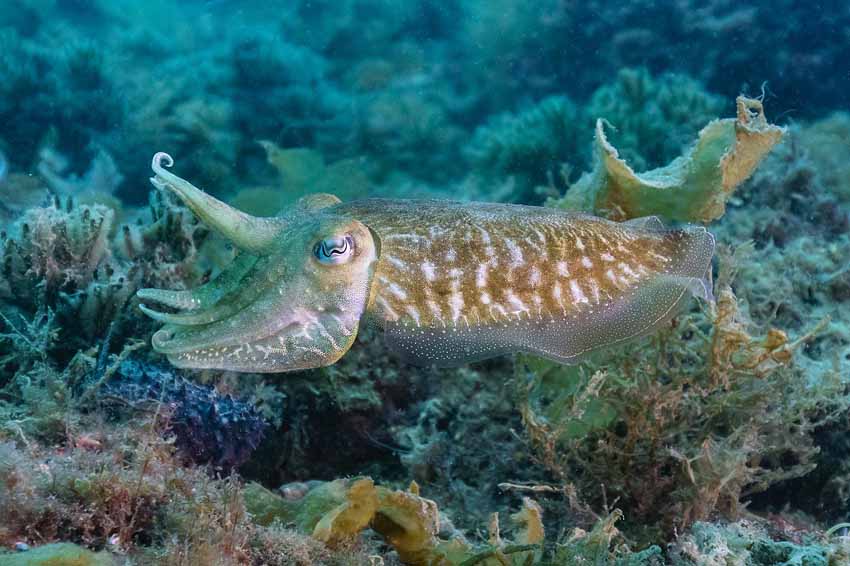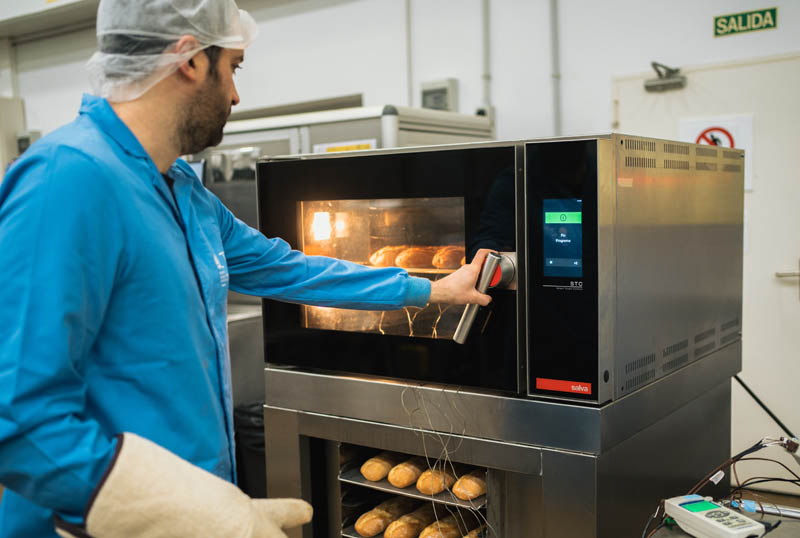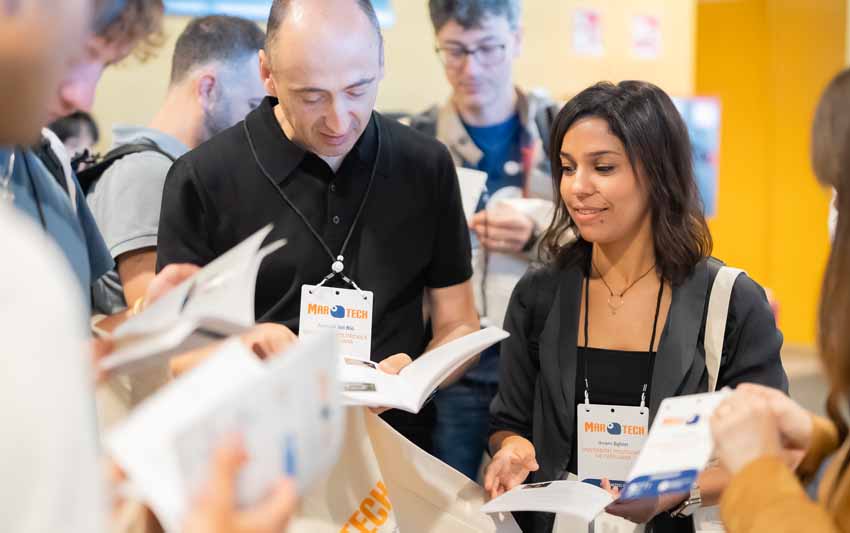Ulysses, a pioneering scientific project in the fight against marine litter pollution in the world’s oceans
Últimas noticias
An LGTBIQ+ perspective on the animal kingdom
Una mirada LGTBIQ+ al reino animal
Circular Economy in Action: Valorisation of By-products through Projects like PRIMA NEWFEED
- With the institutional participation of the Basque Government, the project, running since 2020, is managed by the technological experts of AZTI and the aerospace company Elecnor Deimos.
- Regional Minister Arantxa Tapia closed the presentation ceremony, which was attended by Jorge Ballester, director of the Data For Science Foundation, and Rogelio Pozo, CEO of AZTI.
- More than 1,000 devices will be deployed in the Bay of Biscay to improve the monitoring of marine litter drift and the health of the Basque coast.
Donostia, 21 February. The Ulysses Data For Science project was started in 2020 as a response to the growing problem of plastic waste in the oceans and its harmful effects. From the outset, the project has been designed with a scientific approach to find medium- and long-term solutions to marine litter pollution. Science requires time, accuracy and rigour, as haste only hinders the process. In June 2020, AZTI and the aerospace company Elecnor Deimos started to develop an ambitious but achievable project. After a year of work, and once the scientific approach had been established, the project was presented to the Directorate of Natural Heritage and Climate Change of the Basque Government in mid-2021. At the same time, the scientific project was improved through dissemination activities, on the premise that it would be a project open to the participation of the whole of Basque society, including its institutions, companies and citizens.
March 2024 will see the launch of a new phase of Ulysses, a ground-breaking scientific initiative to collect data on marine litter in our seas and estuaries. The aim is to deepen our understanding of how plastic arrives and is distributed, in order to act as a catalyst for strategies to mitigate this worrying situation.
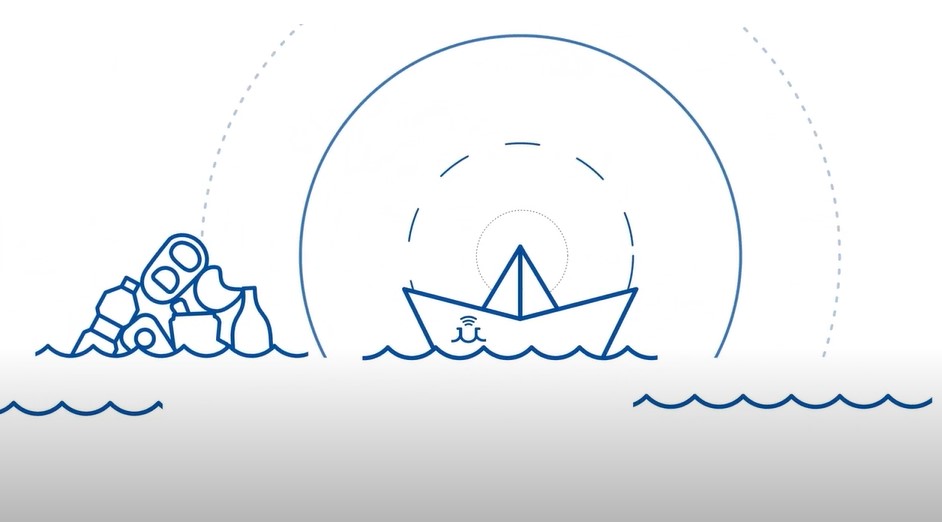
“We want to use science to generate knowledge that will lead to effective action to protect our oceans” says Jorge Ballester, director of the Data For Science Foundation, a private non-profit organisation that will be involved in the project over the next three years.
The project, which is supported by the Basque Government, is based on a public-private partnership open to the whole of society. “It is essential that the institutional leadership of the Basque Government allows us to involve different stakeholders and ensure that the project is inclusive and sustainable in the long term,” underlines Jorge Ballester. The protection of our oceans is a shared responsibility and the participation of society as a whole is crucial to the success of this initiative.
The Ulysses scientific project will distribute more than 1,000 devices in the Bay of Biscay to improve the monitoring of marine litter drift. Video cameras will be used to monitor floating litter in the Nervión, Deba and Zadorra rivers. In addition, three types of boats will be used: the Ranger, equipped with advanced sensors; the Traveller, small modular devices equipped with GPS and very useful for analysing the transport of sea and river currents; and the Wooden, small wooden boats without sensors, which will make up the largest number of boats used. Finally, the Wavy Ocean and Littoral platforms, previously developed as part of the European Meloa project, will be used.
Ulysses has five interlinked initiatives, each of which plays a key role in achieving our common goal. With Ulysses Sea, different technologically equipped fleets will map marine plastic drift in the Gulf and geolocate accumulations via satellite. The data obtained will be used to map the drifts for subsequent collection. Ulysses Rivers focuses on understanding the flow of plastics from rivers to the sea and identifying hotspots where this waste accumulates. Ulysses School and Experience will promote environmental awareness and action through educational activities and interactive exhibitions. Finally, the Ulysses Circle will promote the circular economy based on the premise of the 4 R’s: reduce, reuse, recycle and recover.
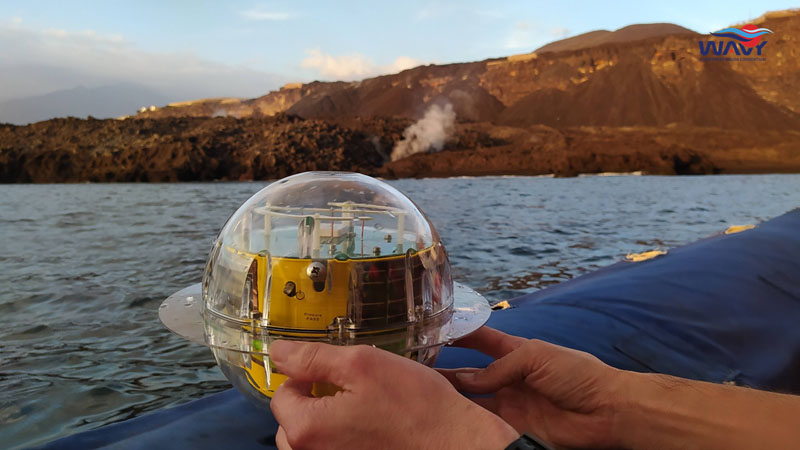
Marine litter pollution literacy
AZTI, a leading technology centre specialising in marine and food research in the Basque Country with an international reputation, and the technological leader of the Ulysses scientific project, has been working for years to promote public knowledge of the dynamics of marine ecosystems, the human pressures on them and the invaluable benefits that the sea provides us with. With Ulysses, AZTI is introducing a key pillar: ocean literacy, involving society as a whole. This initiative underlines the importance of marine science in the development of sustainable economies and policies, building common understanding and shared values. For its part, Elecnor Deimos complements the work with AZTI through satellite tracking of equipment at sea and the generation of real-time maps to visualise the “fleet” and generate models of the movement of marine debris at sea.
The Ulysses project aims to increase knowledge of the river and marine environment and raise awareness of its conservation. “We are supporting this project with the aim of improving the health of the Basque coastline and promoting understanding and awareness of the importance of preserving our marine ecosystems. Close collaboration between the public and private sectors, involving business, industry, universities and other stakeholders, is essential to the protection of the Bay of Biscay. This cooperation is key to promoting interdisciplinary research, developing sustainable technologies, implementing environmentally friendly practices and promoting effective policies,” said Arantxa Tapia, Regional Minister for Economic Development, Sustainability and the Environment.
Rogelio Pozo, CEO of AZTI, has emphasised that “technology plays an important role in the reduction and effective management of marine litter, helping us to reduce the costs associated with its collection. In Ulysses Rivers, for example, we will be using a videometry system based on a camera and an algorithm specialised in the detection of floating objects, which will allow us to monitor, in almost real time, the litter circulating in a stretch of river”.
“Through the scientific method, we can obtain accurate data and make objective analyses to help us take effective action to preserve and protect our ecosystems. It is vital that we continue to support scientific research and use scientific evidence to guide our actions to preserve the environment and fight plastic pollution in the oceans,” adds Rogelio Pozo.
The main objective of Ulysses is to contribute to the consolidation of local policies against the pollution of our rivers and the Bay of Biscay, by providing guidelines and enabling the development of intelligent tools to optimise the collection of floating litter. Ulysses’ collaborative approach goes beyond its status as a project: it aims to become a movement. Initially local, it aims to extend its initiatives to other countries and continents. Collaboration between the public and private sectors, as well as the active participation of society at large, is essential to achieve this ambitious goal.
